Newly-joined WGAW members applaud the solidarity.
1/23/2026 • Evan Henerson
His Name is Reo and He Can Spin a Tale
2026 TV Laurel Award Honoree Don Reo reflects on his career.
Ask any member of the WGAW and you’ll hear a unique story about the circumstances under which they entered the Guild. The individuals who got their Guild card in late 2022 or at any point in 2023, however, came to the WGAW as their profession faced the existential threats that led to the 2023 strike. By the time the five-month strike was over, an already changing landscape morphed even further, and the WGA had achieved unprecedented gains in its new MBA.
For some members, the ink was barely dry on their membership cards before they took up signs and hit the picket lines, some as strike captains.
At a recent new member orientation at the Writers Guild Theater, Written by asked several members their thoughts on joining the union at this historic moment in the WGAW’s history. Some are currently working. Others are between gigs but eagerly anticipate some of the perks that will come with their next job. To a person, they all recognized and saluted the WGA’s collective fight to improve the profession for writers.
Or as Jamarcus Turner put it, “We stuck together. We will stick together. New people like me who are coming in will understand that we don’t cave and we don’t break.”
Emma Soren - Member since November 2022
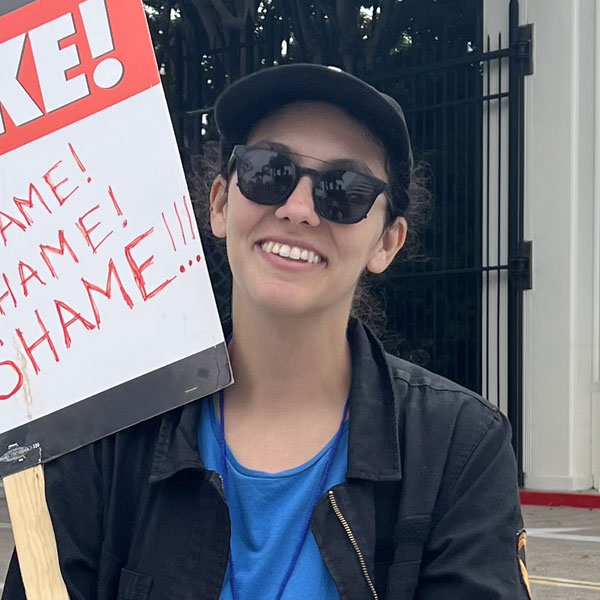
Chicago native Emma Soren moved to Los Angeles after graduation. Inspired by shows like The Office and Parks and Recreation, she took a job in the mailroom at WME and gradually moved up through the ranks, from showrunner’s assistant to assistant script coordinator. She became a member of IATSE 871 (whose members include script coordinators) and served on that union’s negotiating committee in 2021.
That experience is part of what inspired her to take an active role when she joined the WGAW, following her promotion to staff writer on Koala Man.
“I was excited to help,” Soren said. “Having been an assistant for five years, it was really impactful for me to join the union at this point in my career, to be a writer fully in the WGA and to be seen as such.”
Soren’s experience as a strike captain put her in contact with hundreds of writers on a daily basis.
“The solidarity gave me a lot of hope and really gave me the feeling that the WGA is a community,” Soren said. “I’ve gone to my first mentor meeting and I was so impressed at how many people volunteered to be mentors. That was really nice.”
Brenna Galvin - Member since April 2023
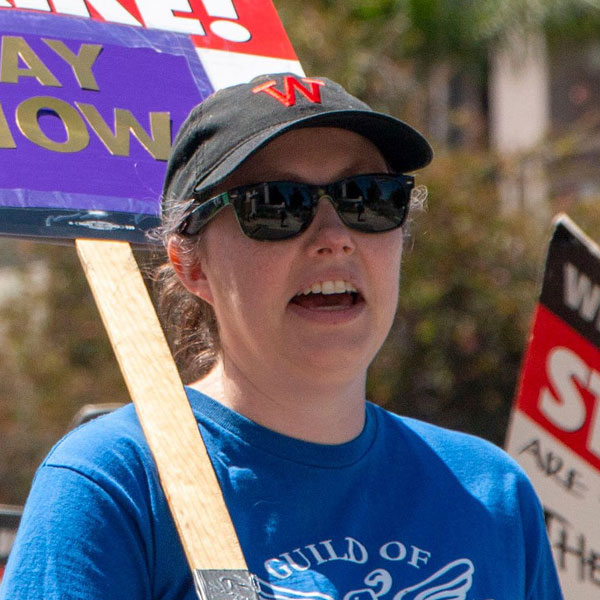
Brenna Galvin’s path into writing included several years as a script reader, followed by a detour where she worked as the operations manager for a wine-tasting event. That latter job afforded the New Hampshire native the opportunity to travel and to collect plenty of interesting stories.
“It was an interesting, off-the-wall job. It was fun,” Galvin said, “but I missed writing.”
The feature that Galvin ultimately sold to Netflix included a guaranteed rewrite, earning her enough points to get into the Guild. When she returned to the project at the conclusion of the strike, Galvin was keenly aware that, thanks to newly-signed MBA, the second step she had negotiated for herself before the strike would be guaranteed for writers who work for less than 200 percent of the screenplay minimum.
“I was lucky. It could easily not have happened that way,” Galvin said. “The second-step is a very important protection for feature writers.”
During the strike, Galvin was a frequent visitor to the Sony picket lines, so frequent that she was quickly enlisted to be a captain. The role gave her the opportunity to meet fellow Guild members including other feature writers and WGAW Board members.
“Joining the union had been such a goal of mine and was such a big career accomplishment,” said Galvin who stayed on as a captain after the conclusion of the strike. “Having it happen right before the strike just made me want to be highly involved, both to celebrate that I had gotten to that step and to meet fellow union members.”
“I feel really grateful to be joining the union at such a time of solidarity,” she added. “Even though there are challenges within the industry, it does feel like there’s a lot of optimism and hopefulness that the changes we have made are very beneficial, and that we can continue to build off of that.”
Nkechi – Member since October 2022
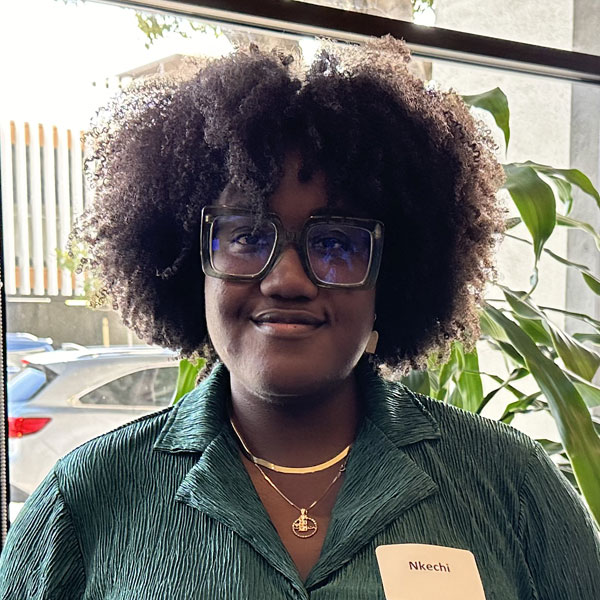
When Nkechi joined WGAW in the fall of 2022, some of the Guild’s programs welcoming new members were either being held virtually or were suspended as the Guild focused on the contract campaign.
So the opportunity to mingle in person with her fellow members at a post-strike new member orientation was especially welcoming.
“I’m really excited coming back and getting to meet all of the other people that joined at the same time as me and after I got admitted,” Nkechi said. “I’m starting to feel like it’s a new breath of fresh air.”
Nkechi experienced a similar surge of union pride, both in the lead-up to the 2023 strike and on the picket lines where she served as a captain and underwent an unofficial crash course into the workings of the WGAW.
“That was such a good way for me to feel like the Guild works for all of us at once,” Nkechi said of being a captain. “The strike was definitely scary as a new writer, but it was also a learning experience at the same time. I’m glad to be on the other side and to see so many gains made by collective organizing.”
She entered the industry as a showrunner’s assistant after spending time in other fields, including museum curation and writing video game copy. Her first staffing job was on an hour-long Netflix series that did not go into production. The room was scheduled to wrap on May 2, but the start of the strike pushed up that ending, and Nkechi moved from their writers’ room to the picket lines.
Having just written her first episode prior to the strike, she acknowledged that the staff writer script fee provision of the new MBA would have been a boon during the strike.
“It makes me feel so good to know that the next person coming up, the next person getting promoted from being an assistant or being unemployed, is going to have their life changed by getting that money,” Nkechi said.

Joining the union had been such a goal of mine and was such a big career accomplishment. Having it happen right before the strike just made me want to be highly involved, both to celebrate that I had gotten to that step and to meet fellow union members.
- Brenna Galvin
Jamarcus Turner - Member since December 2022
Fun fact about Fort Wayne, Indiana: the city has more factory jobs per capita than any place in the world. So shares WGAW member and Fort Wayne native Jamarcus Turner, who estimates he worked 80 such jobs over 17 years before breaking into the motion picture and TV industry.
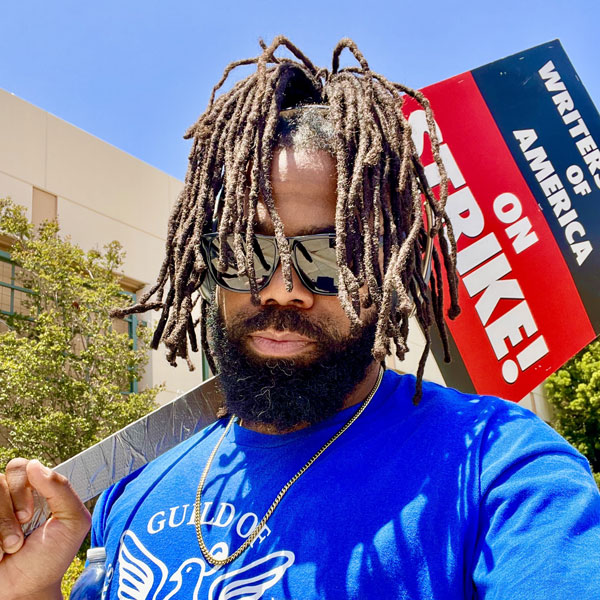
“I still carry my forklift license in my pocket,” said Turner. “I was driving a forklift building plastic tanks, working 60 hours a week. Then I got a job working for CBS and it changed my life completely.”
A comedian as well as a writer, Turner was encouraged to take a stab at writing by a comedian that he followed on X (formerly Twitter). He wrote a script which he submitted to Jon Stewart’s production company. Although he wasn’t hired, his script attracted attention and led to a meeting at Disney. Interest from agents and managers followed and, shortly after signing with ABA Talent Agency, Turner was sent out for an interview with Bob Hearts Abishola. He spent two full seasons on the show, earning his WGAW membership and progressing from staff writer to story editor.
During the strike, Turner shuttled between the Warner Bros. picket lines and family obligations back home in Indiana. Tapped to be a captain in part because of his extensive past trade union experience with the United Steelworkers, Turner embraced his role.
“Really what it comes down to is the reason why you need a union is because people on the other side will pay you as little as they can to do a job, and your job is to get as much as you can,” Turner said. “So unions serve the same function in every space I’ve been in.”
Sean Persaud - Member since October 2023
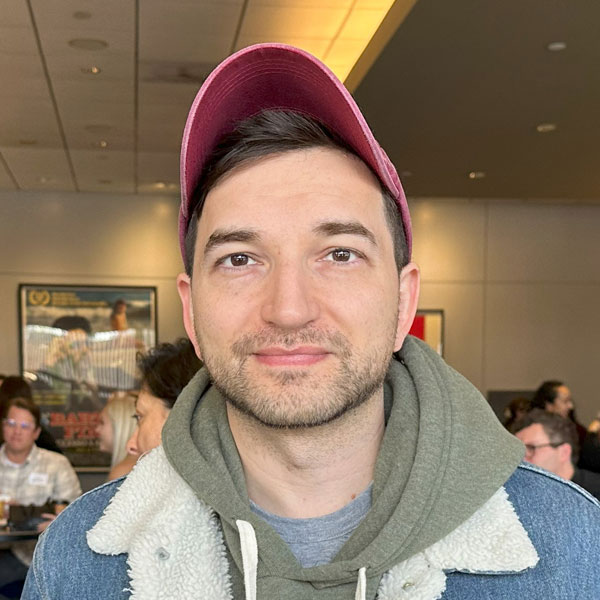
Sean Persaud confesses he may not be the best person to characterize the vast differences between the 2023 MBA and previous WGA contracts, at least not based on first-hand experience.
After all, Persaud and his writing partner Sinead Persaud—who is also his sister—joined the WGAW and booked their first job just before the WGA strike began.
“We had exactly one day of work in a room, and then we were on strike,” Sean said of his work on The Librarians: The Next Chapter.
Sean and Sinead have spent the past decade creating shorts and podcasts, often funded by Kickstarter. Brother and sister are both actors and members of SAG-AFTRA.
Although noting the timing of their first staff writing job was a bit ironic, Sean said things turned out well based on the number of gains that the new contract contained. The Persauds are eligible for script fees as well as improved health and pension benefits as a writing team.
“Now that we’re waiting for our next job, that script fee is going to help us pay rent. Same with the pension and health care. That’s huge,” Sean said. “I can’t really express how lucky we are to know that everybody went out and fought for this stuff, and it directly benefits us.”
Pooja Gupta - Member since April 2023
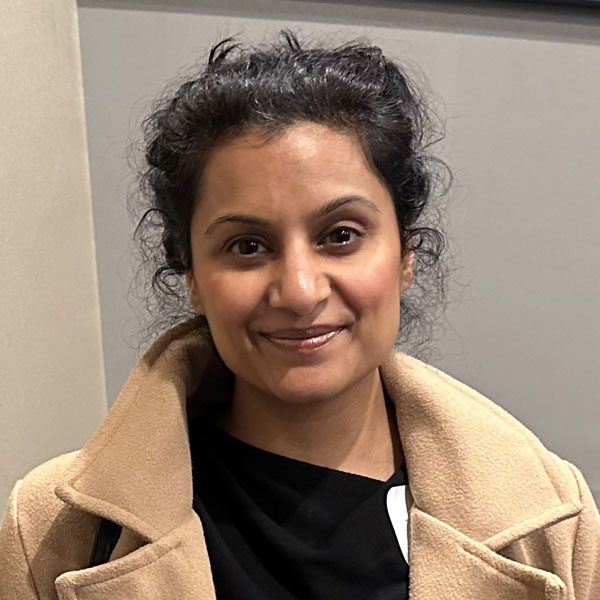
The 2023 WGA strike found the well-traveled Pooja Gupta on the picket lines in Los Angeles alongside fellow writers many of whom, she confesses, she might never have otherwise met.
When the strike came to an end, Pooja Gupta experienced a mixture relief and empowerment. With the new contract, she felt “protected, like I can have a lot more confidence as a writer.”
“It’s just such an honor to be part of this legacy of writers in Hollywood,” she said.
Working often in non-fiction for film and TV, Gupta’s documentary The Ice Bird Cometh—which she co- wrote and produced—qualified her for WGAW membership.
When not working on feature screenplays of her own, she teaches producing and screenwriting and cinema studies at North Carolina School of the Arts.
“I’ve been doing it for a few semesters. I’m juggling that with my feature writing and polishing some specs,” she said.